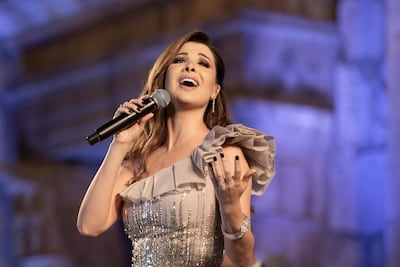Whenever I return to Melbourne it is not only a chance for me to reconnect with family and friends, it also provides me the mental space to take stock of how my near eight-year stay in Abu Dhabi has helped me evolve personally.
Some of these changes are so subtle that it takes near and dear ones to point them out. During my recent trip, at a dinner with friends, my cousin remarked that my Arabic has improved.
Interestingly, the dinner companions, who also agreed, came from a range of Arabic-speaking countries – Eritrea, Palestine, Lebanon and Jordan. They all said that my Arabic verbiage has evolved from the rudimentary to something more multifaceted. My anecdotes, they said, are delivered in a mix of dialects, ranging from Lebanese to Sudanese.

That is when I realised that not only had I returned home with a stronger command of the language, but also a love for its rich nuances.
I have Abu Dhabi to thank for that. The capital's cosmopolitan, social nature has allowed me to immerse myself in the Arabic language. My everyday life here has provided me with a chance to learn and refine my speaking skills. It is the kind of experience that beats any language class.
Yet, despite my leaps and bounds in speaking the language, there is a growing concern within UAE communities that Arabic is getting lost from our day-to-day lives. That is why Abu Dhabi's Executive Committee recently announced a strategy to develop initiatives to enhance the language's prevalence in the capital.
While such a move is to be applauded, I don’t necessarily agree with the belief – shared by many Arabic-speaking elders living in the city – that the language is receding in the UAE. It is only the usage that has changed.
While such a move is to be applauded, I don’t necessarily agree with the belief – shared by many Arabic-speaking elders living in the city – that the language is receding in the UAE. It is just the usage that has changed.
As someone who spent the first nine years of my life in Abu Dhabi, I have experienced this first hand. My early interaction with the Arabic language can be best described as dry. The only style that was studied and encouraged was the classical standard of Fusha.
It was brilliant to understand the richness and subtleties of Islamic tradition and classical texts, but Fusha did not encourage enthusiasm when applied. For example, foreign animated cartoons and even Brazilian soap operas (a big thing in the 1990s) were dubbed in classical Arabic.
Any school activities, from debates to short story writing, were hamstrung by the need to do it all in the Fusha dialect. Such was the relentless focus on this rigorous standard of Arabic that it sucked any passion I might have had for the language.
It was only when I returned to Abu Dhabi two decades later, and began to mingle with its multicultural Arabic-speaking population again, that my passion was ignited.
While covering the arts and entertainment scene across the region, I have seen how the language has been unshackled to embrace its various manifestations. Where once regional dialects were viewed as mere hybridisations of classical Arabic, writers and poets now freely use them in their literary missions to convey a message. This can been seen and heard everywhere today, from Syrian romantic dramas to the playful metaphors that the Egyptian style provides lyricists when penning songs for the likes of singers Nancy Ajram and Amr Diab.
I have also witnessed the beauty and dexterity of the language being used in a plethora of concerts by Middle Eastern hip-hop artists, such as in the gig by Kuwaiti duo Songs of Yusuf earlier this year as part of the Mother of The Nation Festival. The fact the concert was well attended by Arab youth, who rapped along to the lyrics in Arabic, was gratifying to say the least.
Some of these examples are for the sake of entertainment, but they should not be disparaged. They not only provide an important gateway for young Arabs to engage with the language but, importantly, have become a significant avenue of expression.
It is my hope that authorities remain cognisant of this development when creating initiatives to bolster the use of the Arabic language.
We need to move away from the classroom and allow language to take flight in all forms of expression, whether it is in the music studio or in the pages of comic books. There is no right or wrong way to teach Arabic – the challenge is in finding the right method to suit the times.
It is from such a mindset that perceptions of the language will evolve among the youth. It should not be seen as homework, but something that is fun, cool and full of possibilities. Only this can help in preserving Arabic culture against the onslaught of globalisation.



